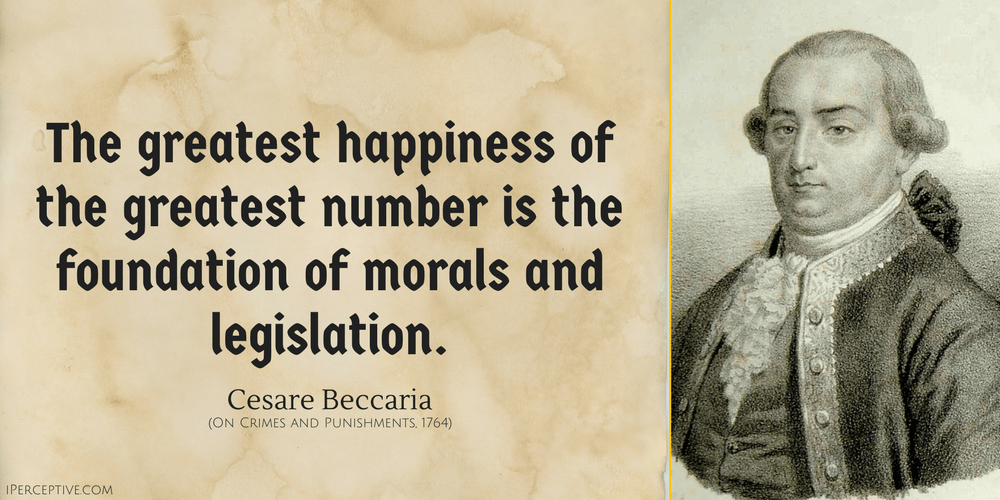Cesare Beccaria Quotes

Happy is the nation without a history.
The greatest happiness of the greatest number.
Laws are the conditions, under which men, naturally independent, united themselves in society.
The greatest happiness of the greatest number is the foundation of morals and legislation.
Every act of authority of one man over another, for which there is not an absolute necessity, is tyrannical.
No man ever gave up his liberty, merely for the good of the public. Such a chimera exists only in romances. Every individual wishes, if possible, to be exempt from the compacts, that bind the rest of mankind.
How great are the obligations due from mankind to that philosopher, who, from the obscurity of his closet, had the courage to scatter amongst the multitude the seeds of useful truths, so long unfruitful!
Let us consult the human heart, and there we shall find the foundation of the sovereign’s right to punish; for no advantage in moral policy can be lasting, which is not founded on the indeliable sentiments of the heart of man. Whatever law deviates from this principle will always meet with a resistance, which will destroy it in the end; for the smallest force, continually applied, will overcome the most violent motion communicated to bodies.

